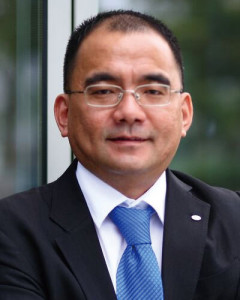The president of the Association of Corporate Counsel (ACC), and China Business Law Journal’s editorial board members, share their observations on new trends and challenges facing in-house counsel
Career mobility and developing talent across the legal profession
Career mobility is a natural progression in the professional journey of an in-house counsel. From higher pay and promotion to growth and development opportunities, corporate culture and working life balance, the employment environment inherently defines in-house experience. Increasingly, lawyers are either on the move or planning to change careers. According to the 2015 ACC Global Census, 64% of in-house lawyers would consider leaving current positions for new ones elsewhere to advance their careers. Just two years later in the 2017 ACC In-house Trends Report, this figure is even higher, with 74% of in-house counsel saying they would leave for an advancement opportunity, while 20% stated they would consider positions with similar titles, salaries and benefits at other companies.

President and CEO
Association of Corporate Counsel
Industry research does show that overall job satisfaction is positive across the profession. More than four in five in-house lawyers have expressed job satisfaction and 43% of in-house lawyers globally are satisfied with their companies’ formal professional development plans. They also agree that the nature of their work is engaging and contributes to the mission of the company. However, more can be done to help lawyers move the needle forward with regard to involvement in a company’s strategic and operational activities.
As they undertake more cross-border work in the year ahead, as well as adapt to evolving laws and regulations, and enhance their professional capabilities, it is of critical importance for the leader of the law department to build a strong legal team and position it as an integral part of the business.
You must be a
subscribersubscribersubscribersubscriber
to read this content, please
subscribesubscribesubscribesubscribe
today.
For group subscribers, please click here to access.
Interested in group subscription? Please contact us.
你需要登录去解锁本文内容。欢迎注册账号。如果想阅读月刊所有文章,欢迎成为我们的订阅会员成为我们的订阅会员。
Veta T. Richardson is president and CEO of the Association of Corporate Counsel, the largest global legal association for in-house counsel, spanning 85 countries and more than 43,000 members.
Richardson is also an adjunct professor at Georgetown University Law School where she co-teaches a course on InHouse Counsel: Law and Practice. She has been named four times to the National Association of Corporate Directors Directorship 100 – a listing of the most influential people in corporate governance.
UNCERTAINTY AND COMPLIANCE
The job of corporate counsel is becoming increasingly challenging and complex
CINDY YANG

Director &
Assistant General Counsel
VMware China
The first half of 2018 witnessed a lot of unusual situations. In April, ZTE was banned from buying American technology for seven years. As a result, the company ceased its major operations in May. Although the US government claimed this was an isolated instance, worries spread among Chinese high-tech companies and their US counterparts.
Such worries were soon “proved” with another piece of news that the Department of Justice had been investigating Huawei for a potential violation of US sanctions on Iran.
President Donald J Trump’s tweet in May to support ZTE confused almost everyone. The tweet eventually led to ZTE’s removal from the Denied Persons List (DPL) in July with huge penalties and other conditions.
In July, after the US-China trade war became official, Qualcomm and NXP decided to abandon the deal on the expiry of the deadline that the two parties agreed on. Statements from Chinese antitrust regulators have failed to ease concerns that the trade war has spread to the investment area.
Chinese and US companies, which set footprints in each other’s countries, have more fears than anyone else that they will get caught in the crossfire of a trade war and become the first casualties.
Is there legal ground for the US government to ban ZTE? Absolutely. Is there legal ground to bring it back at the expense of a huge penalty? Absolutely. Does it make the work of the legal counsels any easier? Absolutely not.
It is nothing new for legal counsel to factor into their legal comments the impact of policy, legislation trend and political environment. More than ever, the weight of political factors surpasses that of the legal assessment.
Trump’s mercurial nature and the growing nationalistic sentiments on both sides, along with the escalation of the trade war, cast uncertainty on the future. Companies that had to stop doing business with ZTE, following the denial order, had not expected the high-tech giant to be removed from the DPL three month later. Now what? Resume the business? To what scale? Although the legal concerns driving such discussions are from the export control perspective, the assessment must go beyond that.
The impact of the trade war seeps into all aspects of the work of the legal counsels. You have got a solid IP infringement case? That is good. Is it the right timing to file it now?
The company has an approval pending from US government? Maybe, the cause of delay is associated with something that happened in China. Legal counsels nowadays have to think beyond the legal aspects and outside of the region.
PETER ZHANG
-首席律师-General-Counsel-Sony-Mobile-Communications-China-240x300.jpg)
General Counsel
Sony Mobile
Communications
(China)
Compliance with the Anti-monopoly Law: 2018 marks the 10th anniversary of the enactment of the Anti-monopoly Law in the PRC. Despite being one of the top three antitrust jurisdictions in the world, China has a dire need to further revise its legislation. It is also expected to strengthen antitrust enforcement, as it concentrates the enforcement powers originally vested in the National Development and Reform Commission (NDRC), Ministry of Commerce (MOFCOM) and State Administration for Industry and Commerce (SAIC) to the new enforcement body established in 2018, known as the State Administration for Market Regulation.
Recently, we have also seen how the Anti-monopoly Law is playing an increasing role outside the jurisdiction, as evidenced by Qualcomm’s scrapped NXP deal that struggled but failed to pass the PRC antitrust review procedure almost two years after it was first initiated. Internationally, as a case in point about complexity of anti-competition practices, the EU commission has just fined Google €4.3 billion for practices with regard to using Android to strengthen the market dominance of Google search engine. As far as the industry landscape is concerned, a wave of accelerated industry consolidation driven by the Internet, mobile communication, artificial intelligence and frequent innovations has blurred the boundaries between industries and markets that historically have been clear, bringing new uncertainties for identifying dominant status and relevant markets. These changes have posed new requirements that in-house counsels must meet as part of their anti-trust compliance responsibilities.
Cybersecurity and data protection: Data economy is perceived as the fourth industry in parallel with agriculture, manufacturing and the tertiary industry. Sometimes likened to oil for the new economy, data and data flows bring value that no company can afford to belittle. That is why companies are making every effort to obtain and use data and information with the hope of gaining a winning edge over the competition. From social media, shopping platforms to map navigation and in-depth learning service providers, emerging giants are using massive data to provide precise services to users. While enjoying the convenience of big data, consumers are not unaware of privacy concerns. Network operators must comply with legal responsibilities concerning data collection, storage, processing, sharing and transmission.
More than a year has passed since China enacted the Cybersecurity Law, under which the Measures for Review of Network-based Products and Service Security, the National Emergency Plan for Cybersecurity Incidents and the Regulations on Information Security Technologies and Personal Data Security have been promulgated. Supporting implementation measures and regulations are also expected to be introduced, which include the Regulations on Graded Cybersecurity Protection, the Regulations for Protection of Key Information Infrastructure Security, the Measures for Assessing the Security of Outbound Transmission of Personal Data and Important Data, and the Regulations for Assessing Information Security Risks of Information Security Technologies.
The EU’s General Data Protection Regulation (GDPR), effective on May 25, sets forth new regulatory requirements for data protection. It is considered the strictest data protection rules ever, given the unprecedented fines and broadest applicability. When moving forward with innovations, companies must not forget constraints from data protection rules.
YOU YONG

General Manager
Legal Affairs Division
China Minmetals Corporation
With the revelations of the ZTE incident [the prohibition on supplying US components to ZTE] and its continuous escalation, compliance issues have again been put in front of all company leaders, especially legal executives at all levels. In the past, our understanding of compliance was shallow, mainly restricted to the formation of compliance systems and establishment of compliance posts. Its function and role mainly focused on compliance auditing, based on laws and regulations, daily risk control and warning.
The ZTE issue reminds us again that compliance connotation and significance is more than just that and needs to be extended and deepened further. There has to be greater focus on the construction of the compliance system, building of the compliance management structure, optimization of the compliance post function, especially practical promotion of compliance culture establishment, to make compliance awareness deeply rooted among people. In particular, middle or higher management personnel and legal staff are the top of the list on priorities for compliance culture construction.
Meanwhile, we shall also set up awareness of long-term construction of compliance work, and be truly aware that such construction is long-term systematic engineering, and cannot be accomplished in a single leap. It requires continuous construction and perfection from executives to employees, from now to the future, truly making compliance awareness deeply rooted among people, promoting the company’s sustainable and healthy development.
In addition to compliance construction, there are increasing anti-monopoly declarations, examinations and lawsuits, having an increasing impact on a company’s healthy operation. In recent years, with the development of Chinese companies, rapid growth of companies’ scales of business, operations revenues and other indices, a direct consequence of this situation is that the behaviour of companies related to various mergers and acquisitions are increasingly regulated in the domestic and foreign markets. Also, more frequent anti-monopoly declarations and approvals are required, which also directly affect whether a transaction can be smoothly completed and all the more so for declarations and approvals in foreign markets. Chinese companies will give these aspects more attention.
Meanwhile, anti-monopoly lawsuits are increasing, accordingly. Compared with the anti-dumping, anti-subsidy investigations that companies are familiar with, anti-monopoly lawsuits involve possibly both civil and criminal responsibilities, both individual and group lawsuits, as well as huge penalties, posing an increasing impact on the operations of Chinese companies. At present, several state-owned enterprises and large-scale well-known companies have been involved in anti-monopoly lawsuits, which affect their normal operations.
The anti-monopoly declarations and approvals and anti-monopoly lawsuits in company mergers and acquisitions have increasingly become weapons for foreign parties against Chinese companies in international trade. It is for this reason that Chinese companies need to have a deeper understanding of the issue and be better prepared for it.
VICTOR SHEN

Chief Legal Counsel
Henkel Greater China & Korea
Turbulent and harsher global trade and investment regulatory scheme. The ongoing turbulent global trade and investment regulatory schemes, such as the aggravated tariff war among the world’s major economies, enhanced CFIUS legislature initiatives, stricter reviews of foreign inbound investments in mature-market countries, due to populism and “beg-the-neighbor” policy, is unfortunately driving the world into the deglobalization process in a dark and long tunnel.
Against such a backdrop, multinational companies, operating in China, face increasing uncertainty and unpredictability in regulatory and compliance areas, which imply increasing complexities, burdens and costs for their global supply chains, cross-border collaborations, mobility of talents and flow of goods. Furthermore, the confidence of investors will be adversely affected on a continuation of the ongoing turbulent and harsher global trade and investment regulatory scheme.
Tackling the continuously evolving landscape of data protection and cybersecurity. The prevalence and permeation of big data, as well as artificial intelligence, into corporate’s business operations on the one hand, if implemented smartly, may increase operating efficiencies. However, another side of the coin is that the mushrooming legislative initiatives, covering data protection and cybersecurity, which multinational companies operating in China need to comply with, have proved to be a hard nut to crack.
The ongoing challenge gets even bigger when multinational companies in China need to deal with the host country’s regulations, as well as their home country’s rules simultaneously, as both of these do not necessarily co-exist in harmony with each other in terms of values, guidelines and implementations underlying them respectively.
Never-lessening environment protection legislature and enforcement practices. As an effort to make up for the aggravating environment protection status, China is implementing the environmental protection laws and regulations more robustly and with increasing determination. However, to put things in perspective, China is still a long way away from a sound environmental regulatory compliance ecosystem.
Some of these are out-of-date environmental protection regulations, conflicts between relevant environmental protection regulations, and absence of detailed, predictable and transparent implementation guidelines. All these put market players, including certain multinational companies in China, engaged in environment-sensitive sectors, in rather difficult positions, when it comes to complying. The questions are related to what to comply with exactly and how to comply with it.
PHILIP GU

General Counsel
Danone
This vaccine incident, involving Changchun Changsheng, has again sounded an alarm to all companies, while also proving the importance of compliance operations and product quality to all companies.
As a global company, registered in Paris, France, with operations in 140 countries and regions on a global scale, it is far from enough for Danone to comply only with the laws, regulations and various administrative provisions of the nations where it operates. We must also comply with the standards and requirements of the European Union, as well as the regulations and product specifications within the group.
Our compliance team in China has drawn up rules and regulations that adapt to circumstances in China and involve all aspects of the company’s operation and management (such as purchasing, sales, public relationship), in accordance with the group guidelines. In addition, we have trained the relevant employees and leaders of each company in which the group invests in China.
Our legal team has re-audited various processes, procedures and standards for our different products with our relevant departments, and also strictly monitored their implementation with the relevant departments.
After all, a company can only sustain by relying on its quality products and services. Without the products and services to meet constantly the requirements of consumers or without the love and support from most of a majority, no company can survive. Also, without employees, who take their daily work seriously, with the attitude of leading characters, there is no guarantee that a company can constantly maintain high-quality products and services
Therefore, the entire company, not just the production, logistics or quality-control departments, including the compliance and legal sections, must make their respective contributions to achieve this goal.
LI YIKUN
-法务副总裁-VP-General-Counsel-Fox-Financial-Technology-Hong-Kong-Group-240x300.jpg)
VP & General Counsel
Fox Financial Technology
(Hong Kong) Group
The ongoing trade war between the United States and China will, for the time being and in a certain period ahead, I believe have a drastic impact on the latter’s financial and capital markets, as well as its overall economy. In turn, this will affect business activities of companies. It is not a trade war of national proportions, which has nothing to do with us. In today’s world of economic globalization, China and the US are the two largest economies, which together account for 40% of the global GDP and over 20% of global commodity and trading transactions.
The trade war will have impact on multiple dimensions of the two countries and even the global economy. As legal leaders of companies, we should stay well informed about related developments, analyze how the trade war may affect industries, as well as activities of companies, and develop response plans accordingly, so that our companies will be able to prevent and dissolve legal risks and identify growth opportunities ahead of competitors.
WAN KWONG WENG

Group General Counsel
Mapletree Investments
I see the key threats as being the topsy-turvy moves relating to trade tensions and global focus on data protection.
On trade tensions, moves are having ripple effects on confidence in terms of customer orders and leasing plans.
All these are a wake-up call on the resilience of cash-flow, as well as earnings.
On data protection, we need to be constantly vigilant and there are no short-cuts to the defensive steps.
JERRY XIA

Deputy General Counsel
& Chief IP Counsel, APAC
Honeywell
Identifying OEM trademark infringements. Trademark infringement of OEM products has been a hotly discussed issue in the recent year. Despite variations in their rulings, local courts, generally, believe OEM products, involving trademark piracy and malicious counterfeiting, should be considered infringed goods. However, in some rulings, the Supreme People’s Court argues that no infringement arises from OEM products for export because they do not cause confusion in the domestic market and, as such, do not involve use of trademarks. Still, the logic behind this argument is worrying.
Based on that argument, we may conclude that there is nothing wrong with counterfeiting if all such products made in China are exported. It gives rise to a series of questions: Will China become a supply base for counterfeits of other countries around the world? Will the Chinese customs stop investigating exported counterfeits? How shall local market regulators deal with such products? In view of the rampant counterfeiting activities in China, there is a strong need for ongoing combat operations against OEM products. involving counterfeiting and trademark infringements in accordance with the fundamental trademark infringement theories and the principle of good faith, even if they are all intended for exports. It is also important to avoid situations where trademark squatters succeed in preventing circulation of OEM products of the original trademark owners or any other persons.
Trade secret protection. Vindicating trade secrets has been a challenge due to the heavy burden of proof on owners, complex and expensive authentication requirements, and the lack of specific legal criteria for determining the value of losses. In particular, an infringement may avoid criminal liability if it has not caused a loss of RMB500,000, a threshold for initiating prosecution under current regulations. However, we should consider if such a prosecution system allowed sufficient deterrence, especially when we consider cases where an infringer escapes criminal liability simply because the person committing it has not started using or disclosed the unlicensed trade secret, even if it is worth of hundreds of millions of dollars.
Here is another significant issue worth attention: In judicial practice, generally. the damages awarded in civil or criminal cases, involving unauthorized disclosures of trade secrets, are limited to the related R&D costs. Obviously, these are often unfair amounts, since the R&D costs may be significantly lower or higher than the value of the trade secrets. Also, owners of trade secrets may be precluded from vindicating their rights in cases where it is impossible to determine or prove R&D costs for some reasons (e.g., how can one prove the R&D cost of Coca-Cola’s formula, incurred over a century ago, according to China’s evidence rules? )
Pursuant to Article 17 of the Interpretation of the Supreme People’s Court on Several Issues Concerning the Application of Law in the Trial of Unfair Competition Cases, “where a trade secret becomes known to the public due to an infringement, the amount of damages to be awarded shall be determined based on the business value of the trade secret, which shall be computed based on factors that include, but are not limited to, its R&D cost, income and expectable benefits from implementation of the trade secret, as well as the period of time during which the owner is able to keep a competitive advantage with the trade secret”.
Pursuant to this provision, in light of specific circumstances of the case, a duly licensed professional service provider may be used to assess the value of “expectable benefits” (e.g., loss of potential licensing income) of a trade secret. Therefore, judicial bodies may break through the stereotype, where loss is capped at R&D cost.
Moreover, providing better trade-secret protection with the fast-track administrative enforcement mechanism under the new Anti-Unfair Competition Law, without causing abuse, is also a challenge. In general, specific regulations or judicial interpretations are needed to provide clear guidelines on trade secrets.





















